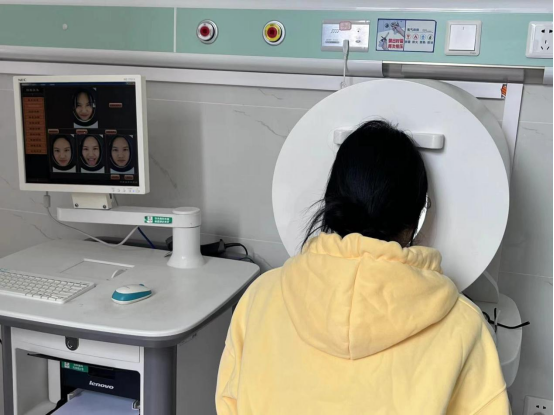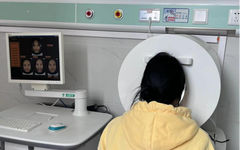
Traditional Chinese Medicine (TCM) constitution identification is a method of classifying the human constitution based on TCM theory. It posits that an individual’s constitution is the result of both congenital inheritance and environmental factors, which together determine susceptibility to diseases and responsiveness to treatments. TCM categorizes constitution into nine types, each with its unique characteristics and conditioning methods. Below is a brief introduction to the nine constitutions:
 1. Pinghe Tizhi (Balanced Constitution)
1. Pinghe Tizhi (Balanced Constitution)
Characteristics: Rosy complexion, abundant energy, normal appetite, good sleep, and regular bowel movements.
Conditioning: Maintain good lifestyle habits, balanced diet, and moderate exercise.

 2. Qi Xu Tizhi (Qi Deficiency Constitution)
2. Qi Xu Tizhi (Qi Deficiency Constitution)
Characteristics: Easily fatigued, shortness of breath, pale complexion, poor appetite, prone to colds.
Conditioning: Increase physical exercise; TCM conditioning herbs such as Huang Qi (Astragalus), Dang Shen (Codonopsis), Shan Yao (Chinese Yam), Bai Bian Dou (Lima Bean), etc.

 3. Yang Xu Tizhi (Yang Deficiency Constitution)
3. Yang Xu Tizhi (Yang Deficiency Constitution)
Characteristics: Sensitive to cold, cold extremities, sore lower back and knees, clear and frequent urination, loose stools.
Conditioning: Pay attention to warmth, consume warming foods such as Yang Rou (Lamb), Gui Yuan (Longan); TCM conditioning herbs such as Fu Zi (Aconite).

 4. Yin Xu Tizhi (Yin Deficiency Constitution)
4. Yin Xu Tizhi (Yin Deficiency Constitution)
Characteristics: Five hearts heat (palms, soles, and chest), night sweats, dry mouth and throat, dry stools.
Conditioning: Consume more Yin-nourishing foods such as Hei Zhi Ma (Black Sesame), Gou Qi Zi (Goji Berries), Yin Er (Tremella), avoid staying up late, and spicy foods; TCM conditioning herbs such as Shu Di Huang (Rehmannia), Nu Zhen Zi (Ligustrum).

 5. Tan Shi Tizhi (Phlegm-Damp Constitution)
5. Tan Shi Tizhi (Phlegm-Damp Constitution)
Characteristics: Obese body type, fullness in the abdomen, chest tightness with phlegm, heavy limbs, drowsiness.
Conditioning: Reduce intake of greasy foods, engage in aerobic exercises such as brisk walking or swimming. TCM conditioning herbs such as Cang Zhu (Atractylodes), Fu Ling (Poria), Chen Pi (Dried Tangerine Peel) can be used as tea.

 6. Shi Re Tizhi (Damp-Heat Constitution)
6. Shi Re Tizhi (Damp-Heat Constitution)
Characteristics: Oily complexion, bitter and dry mouth, sticky stools, yellow urine.
Conditioning: Light diet, consume more foods that clear heat and eliminate dampness, such as Kua Guo (Bitter Melon), Lu Dou (Mung Bean), Dong Gua (Winter Melon), avoid spicy and greasy foods; TCM conditioning herbs such as Zhi Zi (Gardenia), Yin Chen (Virgate Wormwood).

 7. Xue Yu Tizhi (Blood Stasis Constitution)
7. Xue Yu Tizhi (Blood Stasis Constitution)
Characteristics: Dull complexion, dark lips, dry skin, easy bruising, irregular menstruation in women.
Conditioning: Consume more foods that invigorate blood circulation and resolve stasis, such as Shan Zha (Hawthorn), Hei Mu Er (Black Fungus), avoid cold foods, and engage in physical exercise; TCM conditioning herbs such as Dan Shen (Salvia), Chi Shao (Red Peony).

 8. Qi Yu Tizhi (Qi Stagnation Constitution)
8. Qi Yu Tizhi (Qi Stagnation Constitution)
Characteristics: Unstable emotions, prone to depression and anxiety, chest tightness, poor appetite.
Conditioning: Maintain an optimistic mindset, participate in social activities, consume foods that soothe the liver and regulate Qi, such as rose tea and Fo Shou (Buddha’s Hand) tea; TCM conditioning herbs such as Chai Hu (Bupleurum), Zhi Ke (Bitter Orange).

 9. Te Bing Tizhi (Special Constitution)
9. Te Bing Tizhi (Special Constitution)
Characteristics: Allergic constitution, sensitive to certain substances such as pollen, food, and medications.
Conditioning: Avoid allergens, strengthen constitution; TCM conditioning herbs such as Wu Mei (Mume), Fang Feng (Siler).
The above constitution identification and conditioning methods are for reference only. The specific determination of constitution and conditioning plans should be formulated by a professional TCM practitioner based on individual circumstances.


References: 1. Wang Qi, “Ten Lectures on Clinical Application of Formulas”; (China Traditional Chinese Medicine Publishing House) Lecture 10, Section 2.
2. Xuexi Qiangguo app, MOOC TCM Basic Theory – 6.2 Constitution Identification (Beijing University of Chinese Medicine)
Contributor: Lou Shangmin (Preventive Medicine Department)
Editor: Wang Lan
Reviewer: Zou Xinxin
Issued by: Luo Fashun


